Mishpatim 5782 – Is Your Emunah Complete?
L’ilui Nishmat Michael Ben Renee
Shiur presented in 5779
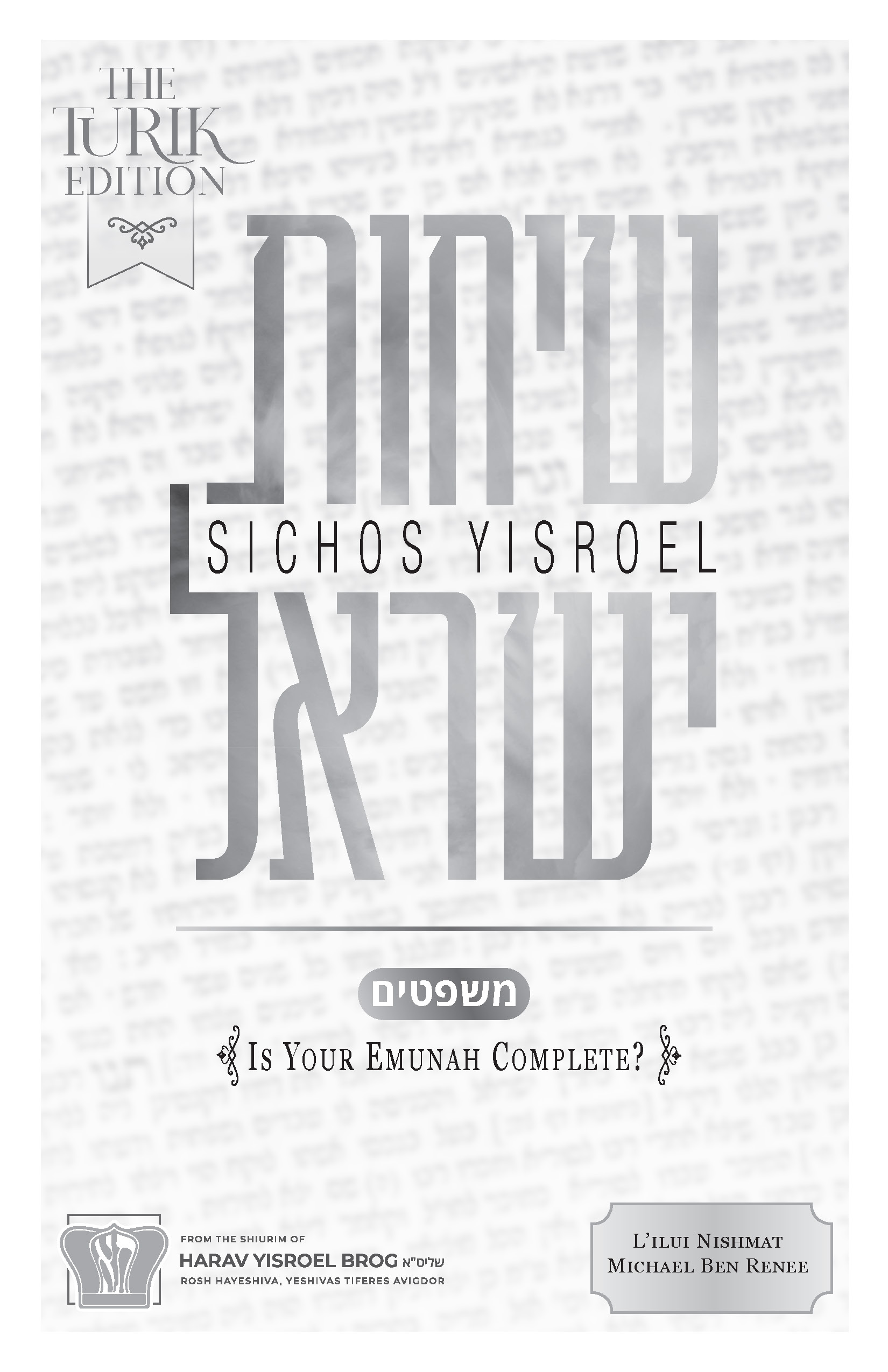
L’ilui Nishmat Michael Ben Renee
Shiur presented in 5779
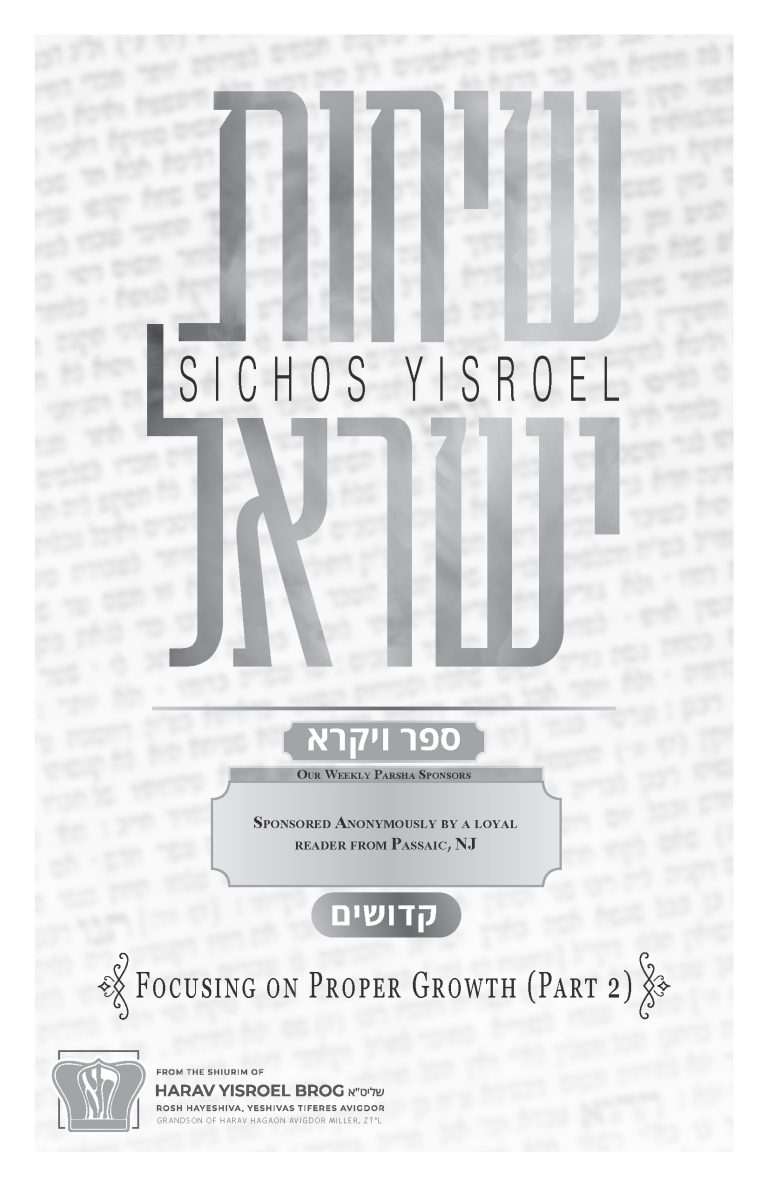
In this week’s parshah, it says “and Hashem spoke to Moshe, saying: ‘Speak to all of Bnei Yisroel…” (Vayikra 19:2). You have to know that this is a very rare introduction. There’s “speak to Bnei Yisroel” but “speak to all Bnei Yisroel” is very unique. Hashem wanted every single part of Klal Yisrael to be involved in this parshah. Rashi points out that for this parashah Klal Yisrael was commanded to come together and to hear directly what Moshe Rabeinu had to say.
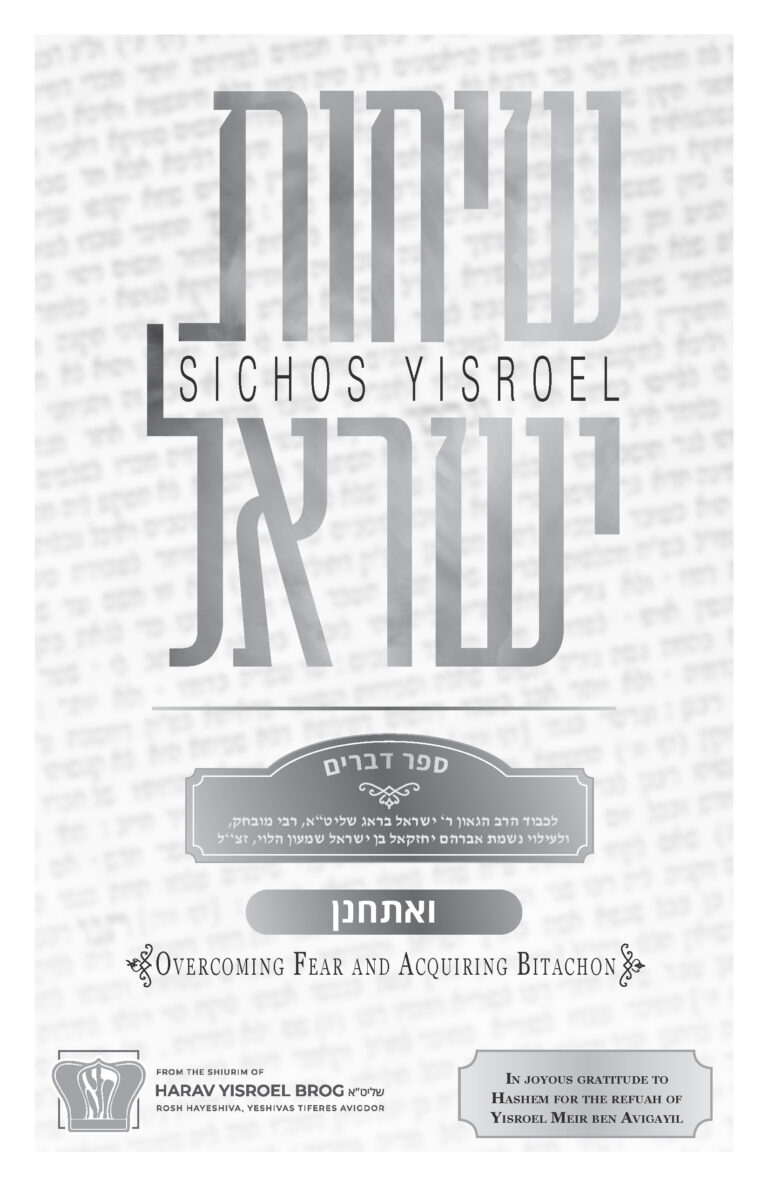
In the beginning of Parshas Vayeitzei, the Torah tells us about Yaakov Avinu. The Medrash Rabbah (68:2) comments on the first pasuk, ויצא יעקב מבאר שבע, as follows. The medrash says that Yaakov Avinu began saying some Tehillim. You know which Tehillim he said? The Tehillim that he said was שיר למעלות אשא עיני אל ההרים, I lift up my eyes to the harim (Tehillim 121:1).
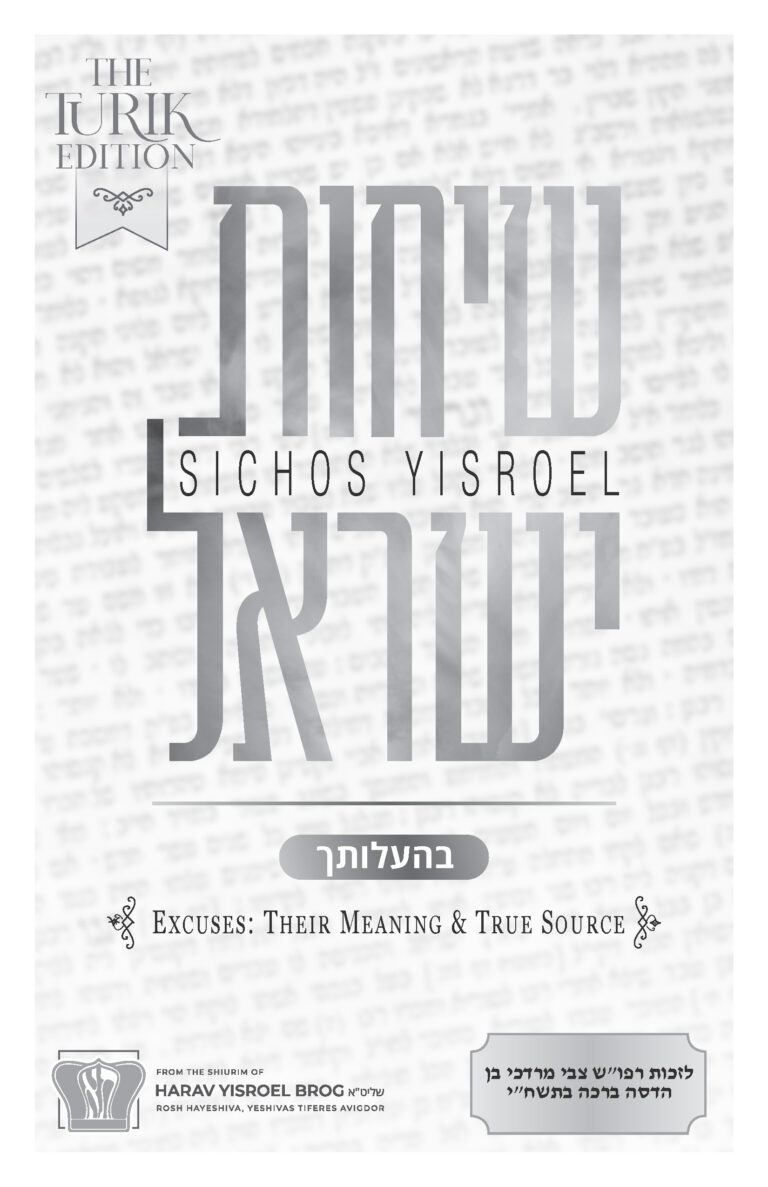
לזכות רפו”ש צבי מרדכי בןהדסה ברכה בתשח”י Consider sponsoring a shiurVisit YTATorah.org Shiur presented in 5779
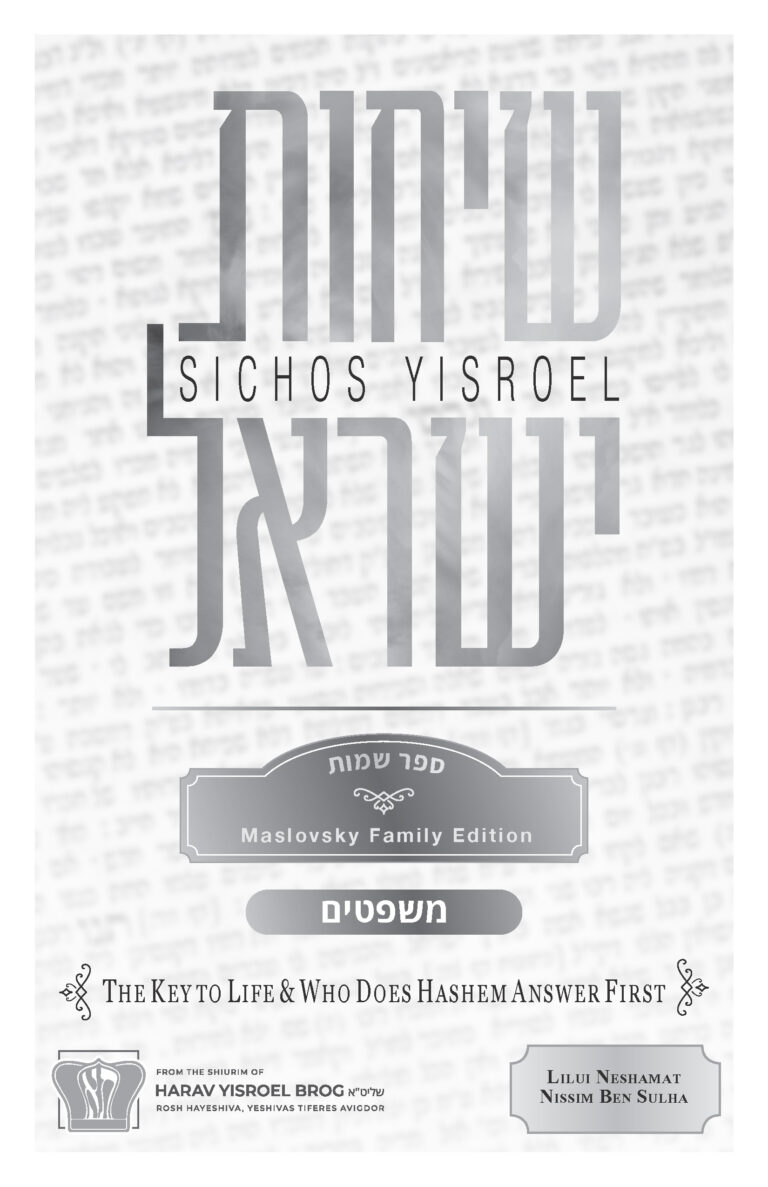
In this week’s parshah there is a moradige yesod with an interesting new twist. It’s something that a person can employ in every endeavor that he undertakes in his life. The passuk says, כל אלמנה ויתום לא תענון, “you should not afflict any widow or orphan,” אם ענה תענה אתו, “if you’re going to afflict them,” be careful, כי אם צעק יצעק אלי, “for if they will cry out to Me,” שמע אשמע צעקתו, “I will hear their cry”
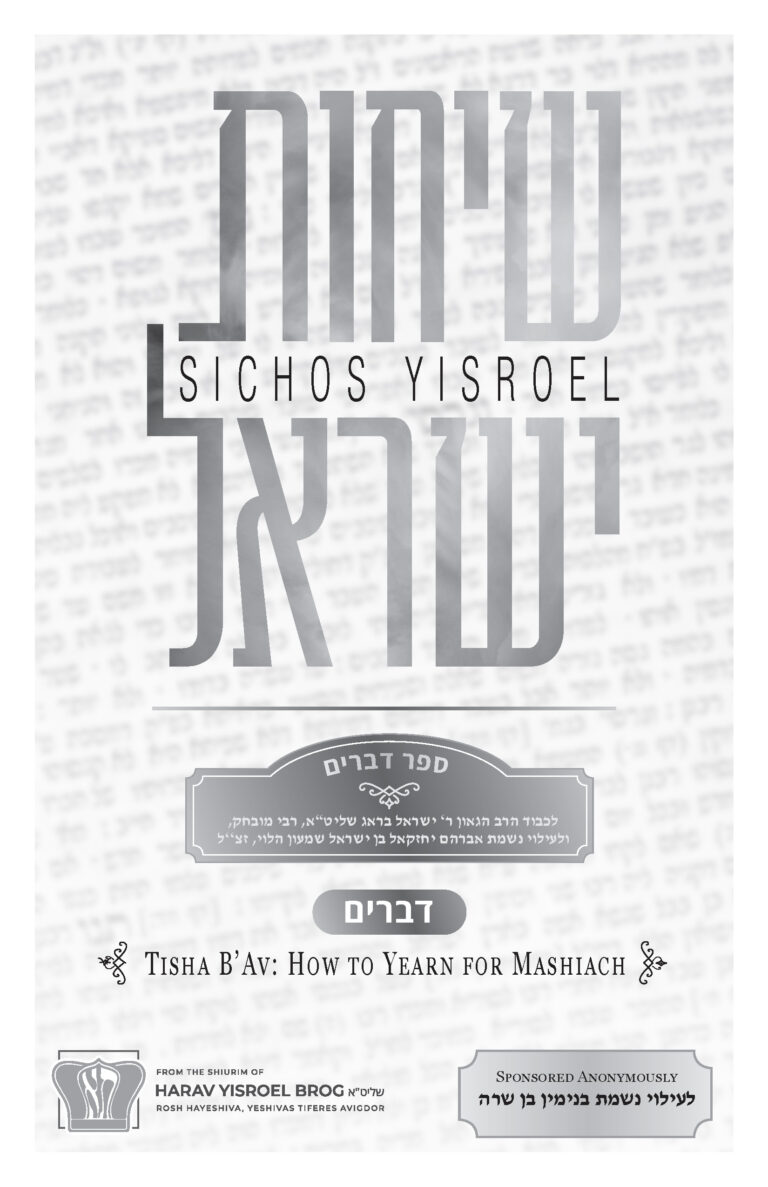
Tisha Ba’av is a day on which we have an appointed meeting, a moed, with Hakadosh Baruch Hu. Tisha Ba’av is a day of special tefillah, called kinnos. The way the moed is expressed is through the kinnos and by yearning for the Beis Hamikdash, and yearning to be taken out of galus. We have to analyze and understand that not all requests are uniform. Different requests require different formats. What is the format for asking for the geulah?
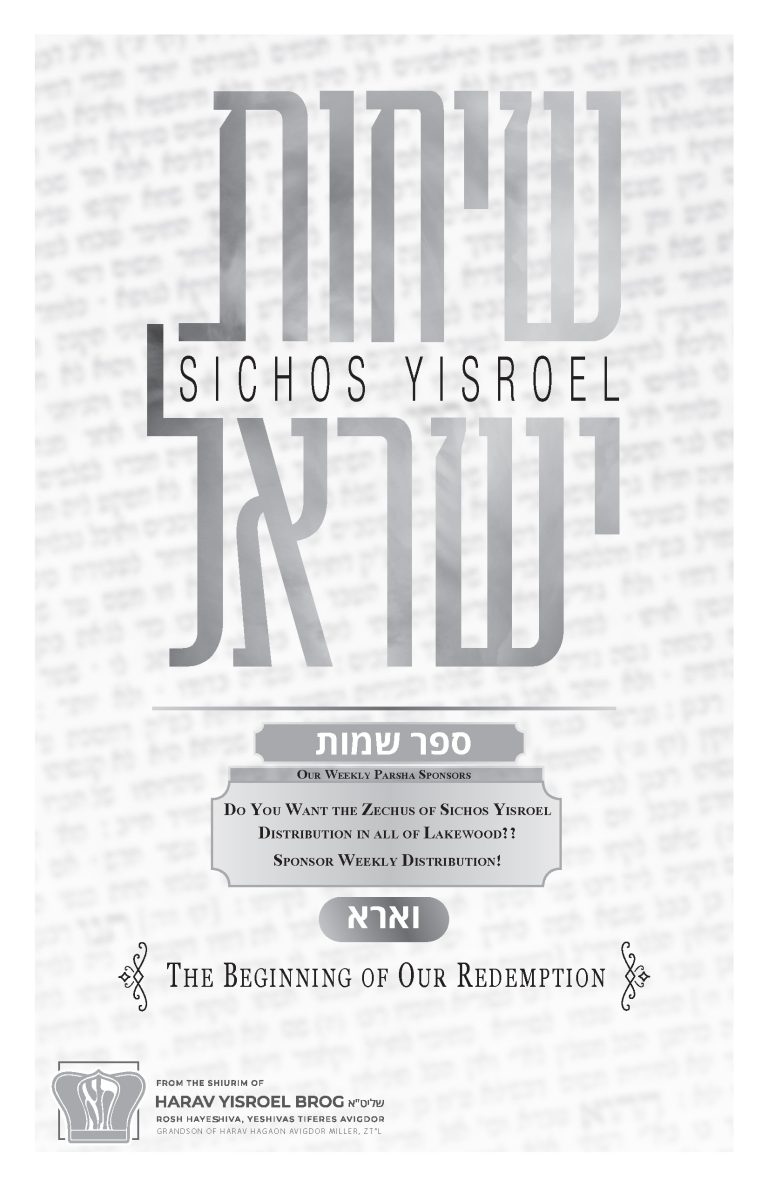
In this week’s parshah, we encounter the yetzias Mitzrayim. Pharaoh will tell you, Moshe and Aharon, to show him some miraculous proof that you are agents of Hashem and you are not just saying it on your own. Say to Aharon, take your staff, throw it down before Pharaoh, and this stick will turn into a serpent, a type of a snake. Interesting, the choice of words that Hashem uses, tanin, a word that is also used to refer to sea serpent. This was similar to the miracle that Moshe performed for the Jewish nation when he first came to see them but over there the staff became a nachash. In front of Pharaoh it didn’t become a snake. It became a tanin.